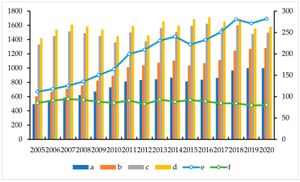Recent polling data from NuggMD has revealed rampant distrust among frequent cannabis consumers toward the Drug Enforcement Administration (DEA), with only 4% of respondents expressing confidence in the agency as a fair advocate for cannabis rescheduling efforts. The survey, which took place between January 16 and January 19, 2025, sampled 677 frequent users of cannabis and carries a margin of error of ±3.77%. The findings come on the heels of delays concerning federal hearings aimed at potentially changing the legal status of cannabis.
According to the poll results, 96% of cannabis consumers do not view the DEA as unbiased stakeholders, leading to concerns over how the agency is viewed by those it is meant to regulate. “Cannabis consumers are the people most directly affected by federal cannabis prohibition, and the DEA has the power to enforce those laws,” said NuggMD's head of communications. This sentiment highlights the challenges the DEA faces as it attempts to navigate reforms within the cannabis community.
The timing of the poll is notable, directly following the federal hearing meant to discuss rescheduling cannabis from Schedule I to Schedule III under the Controlled Substances Act, which would ease restrictions on the substance. This classification identifies cannabis alongside drugs like heroin, marking it as having high abuse potential and no accepted medical use. “When an agency you oversee polls at 4% with one of your stakeholder groups, you either have a policy problem, a personnel problem, or both,” the spokesperson added, calling attention to the uphill battle the DEA faces to regain trust.
The NuggMD poll reflects deep-seated skepticism among cannabis consumers who feel the DEA stands as a roadblock to meaningful legal reform. Such sentiments have been brewing as public opinions on cannabis have significantly shifted over recent years, with increasing numbers of states embracing legalization and reform measures. This lack of confidence poses significant hurdles for policymakers trying to guide cannabis discussions forward, especially against the backdrop of the current administration's openness to change.
The survey results illuminate broader issues at play within the current cannabis debate, as the legacy of the DEA's enforcement-heavy approach continues to color perceptions of its authority. The agency must contend with its historical reputation as resistant to reform, and with it the associated trust deficits. Advocates for cannabis reform are likely to keep the DEA under scrutiny as these discussions progress, demanding clearer accountability and transparency.
With the Biden administration publicly expressing interest in addressing such concerns and reforming cannabis legislation, the recent poll’s findings mark both a challenge and opportunity. Addressing the trust deficit highlighted by the survey could be key for the administration if it aims to move forward with progressive cannabis policy initiatives, including the potential rescheduling of cannabis to Schedule III.
For cannabis consumers, the message is clear: the DEA has significant work to do to prove it can act as neutral parties within these discussions. There is the potential for reforms, but the agency's efforts must be swift, decisive, and convincingly transparent to begin rebuilding the fractured trust between cannabis consumers and law enforcement agencies.
This persistent distrust foreshadows the challenges the DEA faces, and the outcome of these discussions may well shape the future of cannabis consumption and regulation across the country.



